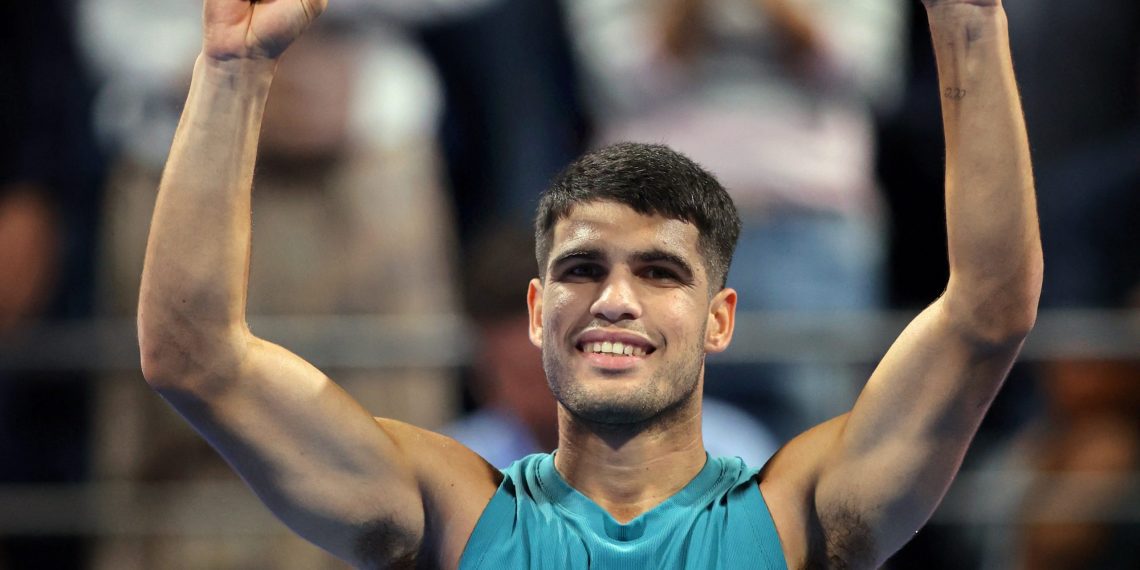In a gripping tennis match that lasted nearly two hours, world no. 3 Carlos Alcaraz faced off against his longtime rival Luca Nardi in Doha’s second round. The match, a rollercoaster of high-paced play and surprising comebacks, ended with Alcaraz pushing forward to the quarter-final with a 6-1, 4-6, 6-3 victory.
Alcaraz and Nardi have a history that dates back to their early junior years, where they clashed as 13 and 14-year-olds. This time, their encounter in Doha was their first professional face-off, and it didn’t disappoint tennis enthusiasts. Although Alcaraz could have secured an early victory, leading 6-1, 4-1 at one point, Nardi upped his game, winning five consecutive games and forcing the match into a decisive third set.
Alcaraz acknowledged the impressive play from his Italian counterpart during the match. He conceded that Nardi’s performance during those five games was nothing short of exceptional, likening it to the skill level of a world no. 1 player. Despite this, the Spaniard managed to reset himself mentally for the final set, showcasing his resolve and tenacity.
Renowned for his skillful volleys, Alcaraz demonstrated his superb finesse throughout the match. His sense of timing when coming forward is unparalleled in the tour, a factor that undoubtedly contributes to his success at just 21 years of age.
Alcaraz’s comeback in the decider was marked by a rejuvenated energy. The four-time Major winner remained mentally sharp, his game punctuated with exclamations of ‘Vamos’ after exciting points. This renewed momentum carried him through to the end, enabling him to clinch the win in style.
Statistically, Alcaraz had the upper hand, clinching 16 points more than Nardi. He also demonstrated strong service play, saving three out of five break points. Nardi, on the other hand, struggled with his second serve and faced 11 break points. Despite overcoming a slow start, the Italian eventually conceded the match after losing serve five times.
The match wasn’t without its fair share of unforced errors and direct points. Alcaraz racked up 27 winners against 30 unforced errors, while Nardi managed only 14 direct points, marred by 34 mistakes.
Alcaraz’s resilience was tested, particularly when he let a significant lead slip away. However, he managed to regroup and start afresh in the decider, challenging Nardi to match his intensity. His triumphant performance in the decider was a testament to his mental fortitude and competitive spirit.
Analyzing the match, Alcaraz acknowledged Nardi’s stellar performance during the second set. He admitted, “When I was leading 4-1 in the second set, Luca played some fantastic points at deuce. He started playing like world no. 1! I had no choice but to stay focused and mentally strong. I give full credit to Luca.”
Despite the brief dip in his energy level, Alcaraz managed to stay mentally strong and reboot his game in the final set. His victory was not just a showcase of his tennis skills but also a testament to his mental strength, resilience, and ability to adapt under pressure. “I left that part of the match behind me and restarted in the decider. I played well in the decider, and I’m proud of the energy level I presented,” he concluded.









